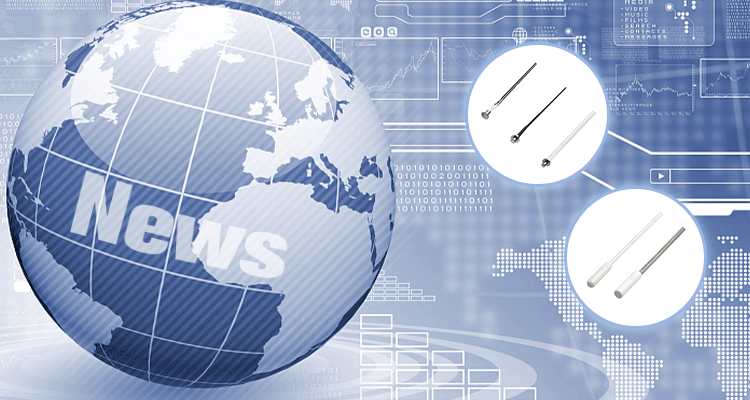Gabim në formatin e postës elektronike
emailCannotEmpty
emailDoesExist
pwdLetterLimtTip
inconsistentPwd
pwdLetterLimtTip
inconsistentPwd


The Role of Temperature Sensors in Coffee Machines
In the world of coffee, precision is key. The perfect cup of coffee hinges on numerous factors, but none is more critical than temperature. Coffee aficionados and casual drinkers alike know that temperature control can make or break the brewing process. At the heart of this precision lies the often-overlooked component: the temperature sensor. This blog explores the importance of temperature sensors in coffee machines, the leading manufacturers, and how these sensors ensure every cup of coffee is brewed to perfection.
The Importance of Temperature Control in Coffee Brewing
Why Temperature Matters
Brewing coffee is a delicate balance of time, water, and temperature. The temperature of the water affects the extraction of flavors from the coffee grounds. Too hot, and the coffee can become bitter and over-extracted; too cold, and it may be weak and under-extracted. The optimal brewing temperature typically ranges between 195°F and 205°F (90°C to 96°C).
Precision in Brewing
Modern coffee machines are equipped with sophisticated systems to maintain this optimal temperature range. This is where temperature sensors come into play, ensuring that the water is heated to the precise temperature required for perfect extraction.
Types of Temperature Sensors in Coffee Machines
Thermocouples
Thermocouples are one of the most common types of temperature sensors used in coffee machines. They consist of two different metals joined at one end, which produce a voltage related to temperature. Thermocouples are known for their durability and wide temperature range.
Thermistors
Thermistors are temperature-sensitive resistors that change resistance with temperature changes. They are highly accurate and provide quick response times, making them ideal for applications where precise temperature control is crucial.
Resistance Temperature Detectors (RTDs)
RTDs use the resistance of a metal (usually platinum) to measure temperature. They are known for their accuracy and stability over a wide range of temperatures, although they are typically more expensive than thermocouples and thermistors.
Leading Temperature Sensor Manufacturers for Coffee Machines
XinYongSheng Electronics
XinYongSheng Electronics is a global leader in sensor technology, offering a range of temperature sensors suitable for coffee machines. Their sensors are known for their accuracy, reliability, and durability, making them a popular choice among coffee machine manufacturers.
Texas Instruments
Texas Instruments provides a variety of temperature sensors that are widely used in the coffee industry. Their sensors are designed to offer precise temperature measurement and control, ensuring consistent coffee quality.
Honeywell
Honeywell's temperature sensors are renowned for their high performance and reliability. They offer a wide range of sensors, including thermocouples, thermistors, and RTDs, tailored for various applications in coffee machines.
Siemens
Siemens offers advanced temperature sensing solutions that are used in high-end coffee machines. Their sensors are known for their precision and ability to withstand harsh environments, ensuring long-term reliability.
How Temperature Sensors Ensure Quality Coffee
Consistency
One of the main advantages of using temperature sensors in coffee machines is the consistency they provide. By maintaining the optimal brewing temperature, these sensors ensure that each cup of coffee is brewed to the same high standard every time.
Energy Efficiency
Modern temperature sensors contribute to the energy efficiency of coffee machines. By precisely controlling the heating element, sensors reduce energy consumption, which not only saves on electricity bills but also makes the machine more environmentally friendly.
Safety
Temperature sensors play a critical role in the safety of coffee machines. They help prevent overheating, which can lead to equipment damage or even fire hazards. By ensuring that the machine operates within safe temperature limits, sensors protect both the machine and its users.
Innovations in Temperature Sensing for Coffee Machines
Smart Sensors
With the rise of smart technology, temperature sensors in coffee machines are becoming more advanced. Smart sensors can be integrated with IoT (Internet of Things) devices, allowing users to monitor and control their coffee machine’s temperature remotely via smartphones or other smart devices.
Adaptive Sensing
Adaptive temperature sensors are an emerging technology that adjusts the heating profile based on the type of coffee being brewed. These sensors can recognize different brewing methods and automatically optimize the temperature for the best flavor extraction.
Enhanced Durability
Manufacturers are continually improving the durability of temperature sensors, making them more resistant to the high humidity and harsh conditions inside coffee machines. Enhanced durability ensures that sensors have a longer lifespan, reducing maintenance and replacement costs.
Conclusion
The precision and reliability of temperature sensors are crucial for brewing the perfect cup of coffee. From ensuring consistent quality to enhancing energy efficiency and safety, these sensors are integral to modern coffee machines. Leading manufacturers like TE Connectivity, Texas Instruments, Honeywell, and Siemens are at the forefront of providing innovative and reliable temperature sensing solutions.
As technology continues to advance, we can expect even more sophisticated temperature control systems in future coffee machines, further refining the art of coffee brewing. For coffee enthusiasts and professionals alike, understanding the role and importance of temperature sensors can enhance appreciation for the intricate process behind each delightful cup of coffee. Whether you’re savoring a robust espresso or a smooth pour-over, remember that behind the scenes, a small but mighty sensor is working to ensure your coffee is brewed to perfection.

